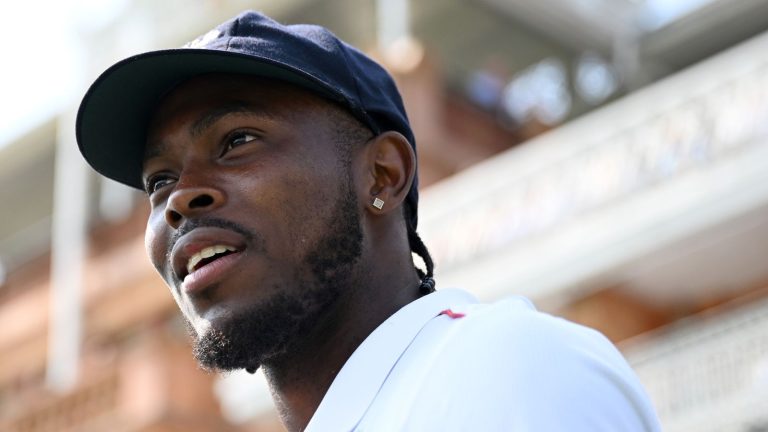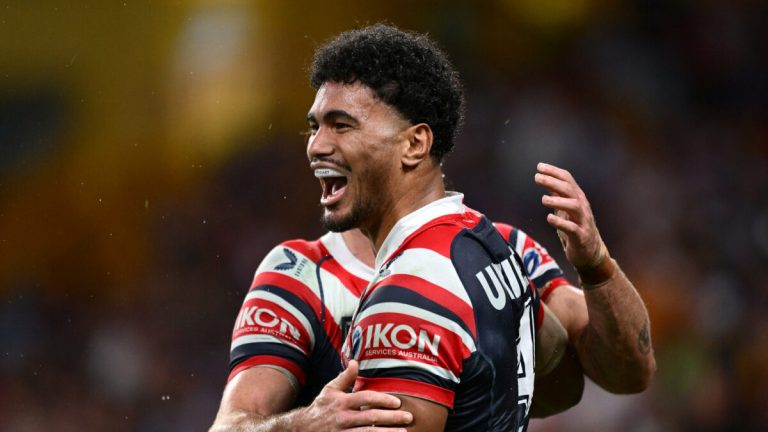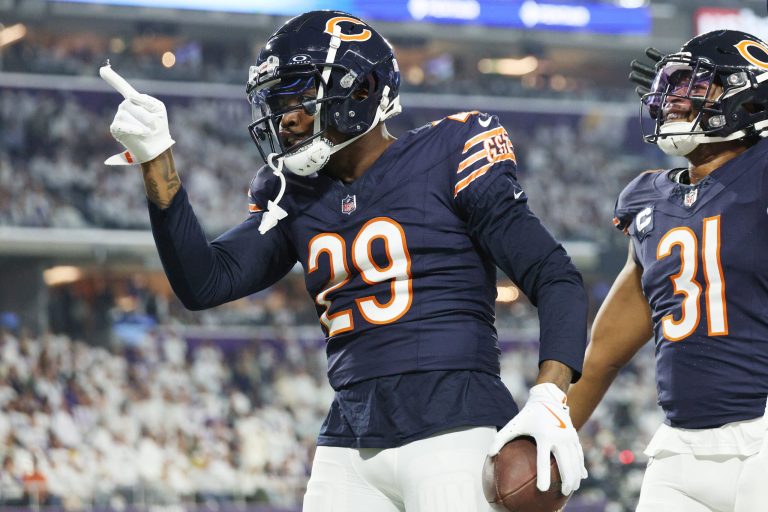Nobody would blame Milwaukee Brewers phenom Jacob Misiorowski if he channeled his inner Dante Hicks from the Generation X classic “Clerks” and bellowed “I’m not even supposed to be here today!” while besieged by reporters at the All-Star Game media day Monday afternoon in Atlanta.
Misiorowski, whose five big league starts are the fewest appearances ever for an All-Star, had nothing to do with his surprise selection to the National League team — a last-minute addition that is both a harmless nothing burger and a bite-sized summation of all the problems Major League Baseball has inflicted upon itself.
Adding Misiorowski, who has wowed fans with a 103 mph fastball and 33 strikeouts in 25 2/3 innings, to the NL squad is a bit of marketing genius that will ensure plenty of eyeballs are focused on an exhibition game whose ratings have been cut in half over the last 25 years.
But the sport wouldn’t need the sugary short-term boost provided by Misiorowski’s selection if commissioners Bud Selig and Rob Manfred hadn’t spent the last three-plus decades doing their best to drive fans away from the game.
After representing the owners during the ruinous players’ strike that canceled the 1994 World Series, Selig went to Capitol Hill — in the aftermath of 9/11, no less — and declared the sport needed to contract the Minnesota Twins and Montreal Expos.
In between, baseball climbed back into the national consciousness between 1998 and 2001, when Mark McGwire, Sammy Sosa and Barry Bonds all exceeded Roger Maris’ once seemingly unbreakable single-season mark of 61 homers. But the trio of sluggers — all credibly linked to PED use even as they mounted their runs at Maris — were subsequently thrown under the bus by a sport whose “leadership” was all too happy to look the other way, all the way to the Hall of Fame, in Selig’s case, while they sparked the sport’s momentary renaissance.
Selig somehow having a plaque in Cooperstown must be emboldening for Manfred, who has spent the last 10-plus seasons reminding us things can always get worse.
After doing nothing of note to punish the Houston Astros for stealing signs on their way to winning the first title in franchise history in 2017, Manfred played hardball with the players’ union in 2020, when Major League Baseball had a chance to play more than half its scheduled regular season in the midst of the COVID-19 pandemic before finally settling on a condensed 60-game slate.
Manfred and the owners implemented baseball’s first work stoppage since 1994 by locking players out following the expiration of the CBA in December 2021. He ran victory laps when a new CBA was hammered out without the cancellation of any regular-season games, but Manfred has all but guaranteed another lockout when this CBA expires in December 2026 while declaring owners will pursue the salary cap that’s forever eluded them. Such rhetoric has people around baseball preparing for a work stoppage that may cost the sport a year or more.
No baseball means we’d get a break from watching teams tank in overt and subtle fashion. At least the Astros and Chicago Cubs yielded championships from their total teardowns.
But the next two nights will serve as a reminder that the Pittsburgh Pirates, headed for their 11th last-place finish and 22nd losing season this century, have done nothing to build around their 1-2 punch of NL starting pitcher Paul Skenes and Home Run Derby participant Oneil Cruz.
Even regularly competitive teams such as the Brewers — who are on pace to make the playoffs for the seventh time in the last eight seasons — have hurt their chances by manipulating the service time of prospects. By not being recalled until last month, Misiorowski — who had a 2.13 ERA at Triple-A Nashville while Milwaukee used 12 starting pitchers prior to his recall — will likely remain ineligible for arbitration until the winter of 2028–29.
Which brings us back to the All-Star Game and the pretty short and direct line between executives punting regular-season games and players no longer caring as much about the Midsummer Classic.
There’d be no need for Misiorowski on the All-Star team if Zack Wheeler and Matthew Boyd hadn’t opted out of the game because they pitched Saturday. Garrett Crochet, Max Fried, Jacob deGrom and Yusei Kikuchi did the same in the AL, though Fried suffered a blister Saturday that would have forced him from the All-Star Game.
Back in 1985, four of the eight starting pitchers to appear in the All-Star Game did so on two days’ rest. And the only hurler to opt out was the Cardinals’ Joaquin Andujar, who was mad Padres manager Dick Williams didn’t select him to start the game over his ace, LaMarr Hoyt.
There will be no such drama between Misiorowski and NL manager Dave Roberts. Then again, this is Major League Baseball — for whom the most perfect ending possible to this modern saga would be Misiorowski somehow not pitching Tuesday night.





